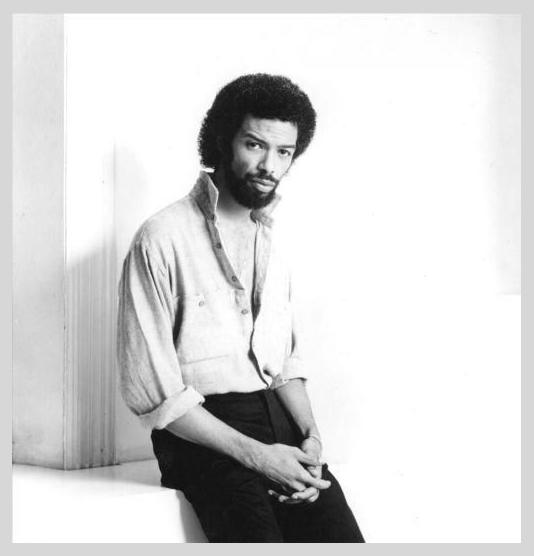 Gil Scott-Heron
Gil Scott-Heron
Gil Scott-Heron: The Poetic Voice of the Revolution
Gil Scott-Heron, the legendary singer, poet, and activist, emerged as a beacon of social consciousness in the 1970s. His music, infused with piercing lyrics and infectious rhythms, became the soundtrack of an era marked by political turmoil and cultural awakening.
Early Life and Inspirations:
Born in Chicago in 1949, Scott-Heron's early experiences shaped his worldview. The son of a social worker and a football player, he witnessed firsthand the challenges faced by African Americans during the Civil Rights era. His love for literature and music blossomed in his formative years, influenced by the works of Langston Hughes, Malcolm X, and John Coltrane.
The Revolution Will Not Be Televised (1971):
Scott-Heron's breakthrough came with the release of "The Revolution Will Not Be Televised" in 1971. The song's biting lyrics and pulsating groove became an instant anthem for the Black Power movement. It challenged the mainstream media's portrayal of social issues and called for a more authentic and grassroots revolution.
Musical Collaborations and Controversies:
Throughout his career, Scott-Heron collaborated with a diverse array of musicians, including Brian Jackson, Ron Carter, and Stevie Wonder. His music often sparked controversy due to its outspoken themes of racial inequality, police brutality, and drug abuse. In 1982, he was arrested for cocaine possession, an incident that led to legal battles and a period of personal turmoil.
Discography:
Scott-Heron released a prolific body of work, including:
* Pieces of a Man (1971)
* Small Talk at 125th and Lenox (1973)
* Winter in America (1974)
* Evolution and Revolution (1975)
* From South Africa to South Carolina (1975)
* Bridge over Troubled Water (1976)
* Secrets (1978)
Members:
Gil Scott-Heron's core backing band consisted of:
* Brian Jackson (piano)
* Ron Carter (bass)
* Billy Hart (drums)
Later Years and Legacy:
In his later years, Scott-Heron struggled with addiction and health issues. He died in 2011 at the age of 62. His music continues to inspire and resonate with audiences worldwide, serving as a testament to the power of art as a vehicle for social change. Gil Scott-Heron's legacy as a poet, activist, and musical innovator remains an enduring force in American culture.
Gil Scott-Heron, the legendary singer, poet, and activist, emerged as a beacon of social consciousness in the 1970s. His music, infused with piercing lyrics and infectious rhythms, became the soundtrack of an era marked by political turmoil and cultural awakening.
Early Life and Inspirations:
Born in Chicago in 1949, Scott-Heron's early experiences shaped his worldview. The son of a social worker and a football player, he witnessed firsthand the challenges faced by African Americans during the Civil Rights era. His love for literature and music blossomed in his formative years, influenced by the works of Langston Hughes, Malcolm X, and John Coltrane.
The Revolution Will Not Be Televised (1971):
Scott-Heron's breakthrough came with the release of "The Revolution Will Not Be Televised" in 1971. The song's biting lyrics and pulsating groove became an instant anthem for the Black Power movement. It challenged the mainstream media's portrayal of social issues and called for a more authentic and grassroots revolution.
Musical Collaborations and Controversies:
Throughout his career, Scott-Heron collaborated with a diverse array of musicians, including Brian Jackson, Ron Carter, and Stevie Wonder. His music often sparked controversy due to its outspoken themes of racial inequality, police brutality, and drug abuse. In 1982, he was arrested for cocaine possession, an incident that led to legal battles and a period of personal turmoil.
Discography:
Scott-Heron released a prolific body of work, including:
* Pieces of a Man (1971)
* Small Talk at 125th and Lenox (1973)
* Winter in America (1974)
* Evolution and Revolution (1975)
* From South Africa to South Carolina (1975)
* Bridge over Troubled Water (1976)
* Secrets (1978)
Members:
Gil Scott-Heron's core backing band consisted of:
* Brian Jackson (piano)
* Ron Carter (bass)
* Billy Hart (drums)
Later Years and Legacy:
In his later years, Scott-Heron struggled with addiction and health issues. He died in 2011 at the age of 62. His music continues to inspire and resonate with audiences worldwide, serving as a testament to the power of art as a vehicle for social change. Gil Scott-Heron's legacy as a poet, activist, and musical innovator remains an enduring force in American culture.